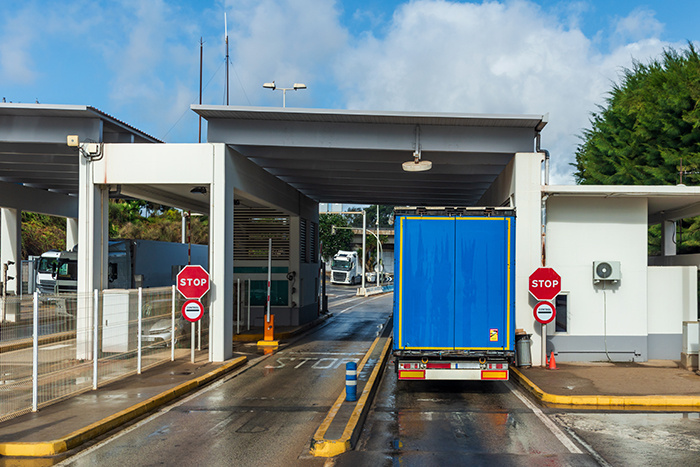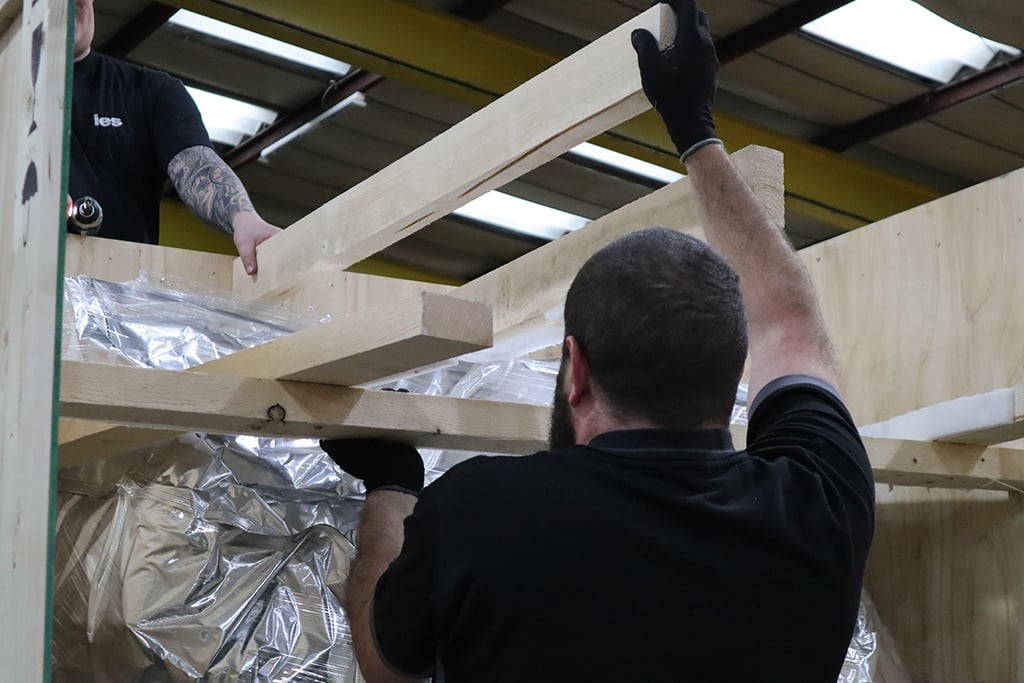Customs and Shipping for Global Factory Relocations: What You Need to Know
Relocating a factory is no easy feat.
We're actively recruiting for a range of roles across sales, engineering, IT and warehouse. Check our careers page to see open positions including apprenticeships.

Whether you’re moving a single piece of equipment or an entire production line, our trusted team of engineers can support every step of your move, from rigging to end-to-end relocation support across the globe.

3 min read
Admin Nov 26, 2013 6:52:00 AM
Ensuring compliance with wooden packaging regulations is crucial.
That’s because non-compliance can lead to delays, fines, or even destruction of your goods.
So, understanding the key legislation, such as ISPM 15 and the UK Timber Regulations (UKTR), is essential for smooth international trade.
In this article, we’ll outline key legislation related to wooden crates used for export packing.
-1.jpg?width=800&height=533&name=Export_Packing_Crates_Ply_Batten_In_Situ_Pirate_Studios%20(11)-1.jpg)
The International Standard for Phytosanitary Measures No. 15 (or, ISPM 15) is an international standard that sets requirements for treating and marking solid wood packaging, such as pallets and crates. Its purpose is to prevent the spread of pests and plant diseases during global trade.
As of 2021, if you’re moving equipment between Great Britain and the EU (including member states and Switzerland) using solid wood packaging, you must meet ISPM 15 standards.
While the standard is widely adopted across the globe, specific requirements can vary by country. Therefore, always verify the import regulations of the destination country before shipping.
ISPM 15 applies to solid wood packaging material (WPM) used to support, contain, or brace equipment, including:
But note that it doesn’t apply to:
See our guide for more detail: What is ISPM? And Who Does it Apply To?
To comply with ISPM 15, WPM must be:
Failure to comply with ISPM 15 can cause delays and additional costs, and you could be made to:
Discover the dos and don’ts of ISPM 15 in our guide here.
Finally, please note that, to be able to produce packaging that complies with ISPM 15, you must be a member of the UK Wood Packaging Material Marking Programme (UKWPMMP) and undergo assessments of your facility every six months.

The Timber and Timber Products Placing on the Market Regulations (UKTR) and UK Forest Law Enforcement, Governance and Trade (FLEGT) regulations have been in force in Great Britain since January 2021.
Their purpose is to prevent the import and sale of illegally harvested timber and timber products in the UK, and requires that due diligence in the form of a risk assessment be performed prior to any wood or wood products being introduced.
UKTR impacts both businesses that first place timber or timber products on the GB market and businesses that buy or sell timber products already on the GB market.
For businesses placing timber products on the GB market, the regulations require them to implement a due diligence system (DDS) to assess and mitigate the risk of illegal timber in their supply chains. This involves:
The FLEGT licensing scheme is part of the UK's efforts to ensure legal timber trade.
Timber imported from countries with a Voluntary Partnership Agreement (VPA) with the UK, (currently only Indonesia) must be accompanied by a FLEGT licence.
This licence verifies the legality of the timber, and importers must submit it to the Office for Product Safety and Standards (OPSS) for verification before customs clearance.
Failure to comply with UKTR and FLEGT regulations can result in serious consequences, including:
At IES, we’ve been helping OEMs and end users pack and ship complex, high-value capital equipment since 1991.
We have extensive experience working with international packaging regulations, and produce our own bespoke ISPM 15 & BS1133 compliant wooden cases for transportation.
Head to our service page to find out more about how we can support your project.
Stay up to date with the latest news and resources from our experts.

Relocating a factory is no easy feat.

Looking to import high-technology capital equipment into the UK from a country outside of the UK for use in your factory?

It doesn’t matter if you’re moving a piece of high-technology equipment 20 miles across towns or 2,000 miles across continents, you want peace of...